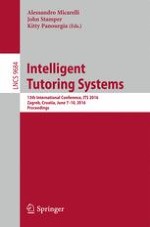2016 | OriginalPaper | Buchkapitel
Stratified Learning for Reducing Training Set Size
verfasst von : Peter Hastings, Simon Hughes, Dylan Blaum, Patricia Wallace, M. Anne Britt
Erschienen in: Intelligent Tutoring Systems
Aktivieren Sie unsere intelligente Suche, um passende Fachinhalte oder Patente zu finden.
Wählen Sie Textabschnitte aus um mit Künstlicher Intelligenz passenden Patente zu finden. powered by
Markieren Sie Textabschnitte, um KI-gestützt weitere passende Inhalte zu finden. powered by
